“I never thought it was possible... but suddenly I was improvising - and sounding great!”
“I never thought it was possible... but suddenly I was improvising - and sounding great!”
It’s time to put an end to the long-standing (but wrong) idea that improvisation is exclusively for gifted “creatives” - or that it’s an advanced skill which requires magic ears and mastery of music theory.
“Improvisation” does not just mean “playing a solo”.
And it’s not just for lead guitar, blues or jazz.
Improvising is, hands-down, the most effective process for developing your musicality.
That's why it should be the #1 activity for any musician who seeks freedom, confidence and a sense of empowerment in their musical life.
Improvising can begin on day one of your musical journey and continually unlock new levels of creativity and expression for you, empowering you to do things you’ve only dreamed of.
Read on to discover how...
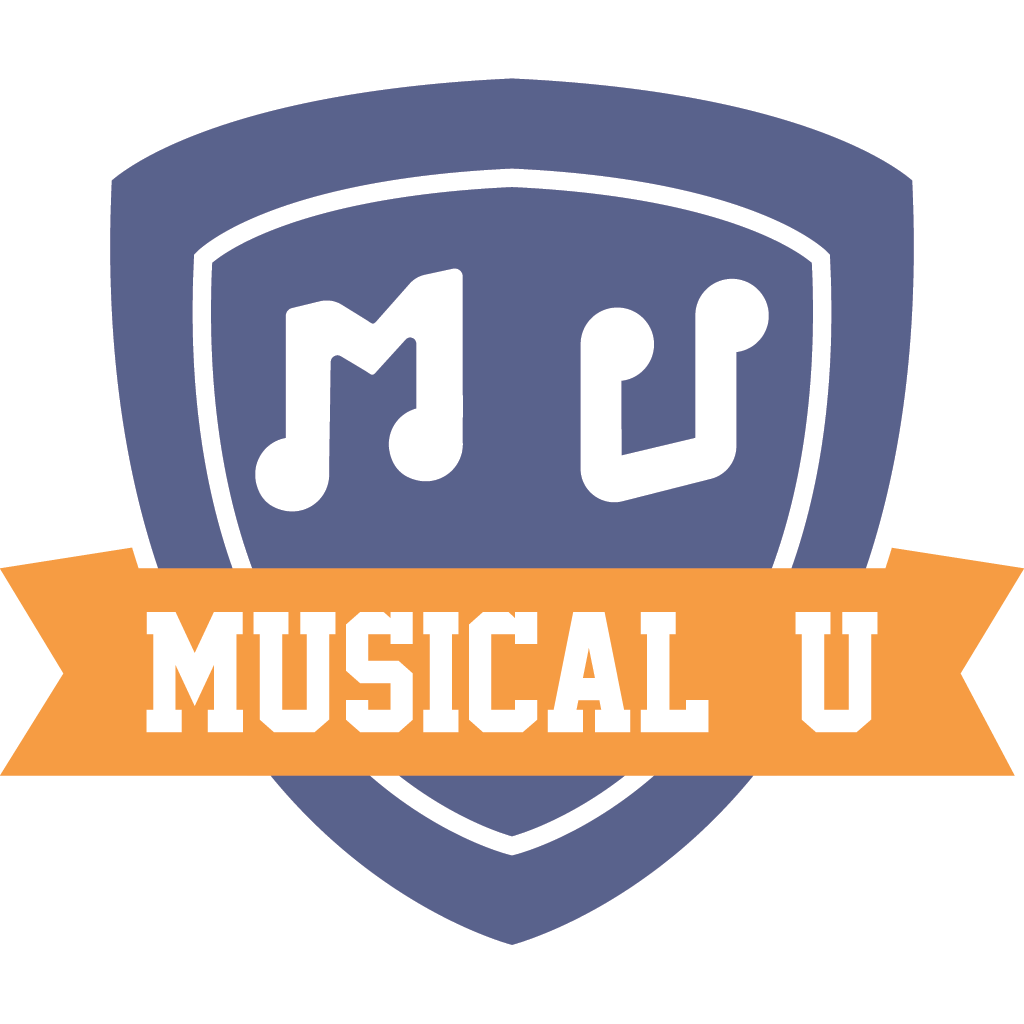
Brought to you by Musical U, the leading provider of musicality training online.
Featured in the New York Times, Classic FM Total Guitar Magazine, and consistently rated 5-stars by musicians around the world.
Featured in the New York Times, Classic FM Total Guitar Magazine, and consistently rated 5-stars by musicians around the world.
There are two types of musician...
1. Those who play the notes they have been given in advance.
That could be learning note-by-note or sight-reading from notation, chord charts, tab - or even creating their own music carefully in advance and memorising or writing it out.
2. Those who can pick up their instrument and just play.
That could be a rock solo, on-the-fly blues licks and riffs, or sophisticated jazz improv.
Which are you?
If you’re like most musicians, you put yourself firmly in group 1...
Or you’re in group 2 but you feel uncomfortable there, like you’ve managed to sneak in but you don’t fully belong…
Either way:
The chances are you don’t feel you fully belong in the "improvisers" group.
Meaning you don’t consider yourself “an improviser” - at least not by nature.
But...
How do you know?
We tend to think that what puts people in one group or the other is one of these things:
-
Innate “talent"
a.k.a. “Improvisers just have a “gift” for that.” -
Advanced instrument skill or theory knowledge
a.k.a. “Improvisers know music inside-out so they can do whatever they want to, including that impressive and seemingly-magical skill: improvising.” -
Learning a particular genre
a.k.a. “Jazz and blues musicians are the ones who improvise”
But what if everything we’ve been told about improvising and what makes you “an improviser” - is wrong?
If you can stay open-minded to that possibility for a moment then you will want to read the rest of this page in full.
Because if improvising does not require any of those things, and improvisation is the key to unlocking your full freedom and creativity in music…
… then it’s possible that without realising it, you have been missing out on the musical life you deserve.
What If...?
- Moving from feeling limited...
- To knowing you are unlimited.
- Moving from rote reproduction of someone else’s notes...
- To personal expression of your own ideas.
- Moving from fear of making mistakes...
- To confidence that you’ll always sound great.
IMPROVISATION
Now in case you're thinking…
“But I’m not a creative person!”
What you may not know is that creativity isn’t a gift - although we think of it like a personality trait or an innate talent, it’s actually a skill - and one you (or anyone) can learn.
Read on to discover the specific framework which unlocks creativity you never knew you had.
“I’m never going to play a solo - so why learn to improvise?”
The idea of “improvisation” has become extremely limited, with the result that most musicians miss out on what improvising truly is, and what it could do for them.
Read on to discover what we mean by “improvisation” - and how exactly it can help you, whatever your musical life looks like…

So What Does “Improvisation” Really Mean?
Before we go any further, let’s get very clear on what we’re talking about when we say “improvising”.
Because if you’re like most musicians then what you currently think of as “improvising” is actually just a single example or two of what improvising can be.
Improvising does not just mean “playing a solo”.
and
Improvising is not just for lead guitarists, blues and jazz musicians.
Simply put:
Improvisation is the act of creating and expressing your own musical ideas, in the moment.
So...
- When someone picks up an instrument for the first time and tries to play a note or two?
That's improvising.
- When someone whistles or hums a little made-up tune to themselves while doing housework?
That's improvising.
- When someone joins a jam session without any sheet music and tries to just play a few notes or chords that fit in with the rest of the group?
That's improvising.
- When someone plays around with their instrument trying to find the right notes for a song they’re writing?
That's improvising.
- And yes, when someone steps out on stage in front of an audience and plays exciting, emotionally-moving, completely original music that blows everyone away?
That's improvising too.
As you consider these examples you’re probably already starting to see why improvisation does not require any of the things musicians commonly assume it does - mysterious talent, advanced skill or knowledge, speciality in a particular genre...
You’re probably also realising how not being able to improvise might currently be drastically limiting you in your own musical life, whether or not you’ve ever thought “I wish I could improvise”.
Because improvising isn’t the end goal - it’s something that can (and should) be right at the heart of how we learn music…
Should It Be "Improvise First"?
In the United Kingdom new university graduates are encouraged to take part in a program called “Teach First” (similar to the “Teach For America” program in the United States).
Even though these people might not intend to “be a teacher” or pursue teaching as their final career choice, they spend a year or two working as a teacher first.
The idea is that not only do the schools benefit from having additional young, energetic and inspired teachers - the participants benefit too, because of how broadly and deeply those two years of teaching will affect them.
And of course many then go on to continue teaching, in one form or another.
What if in music we took the attitude of “Improvise First”?

What if improvisation is actually much more fundamental than it has seemed?
What if instead of viewing “improvisation” as something which only certain musicians could or should do, we instead saw it as a core and essential element of becoming musical and reaching your full potential as a musician?
Now that might seem like an odd suggestion, given what we’ve been led to believe about improvisation…
But at the very least it should cause us to wonder “what if”...
Think About Language, Or The Visual Arts…

As musicians most of us take it for granted that we’ll play music from notation, or memorise it in advance.
Being a “good” musician generally means “performing a song or piece as prepared, without making mistakes”.
But step outside the world of music for a moment and that idea suddenly seems a bit crazy...
Imagine if you met someone and they could only parrot back the specific phrases and sentences they had memorised in advance…

Now you might say that language is special.
It’s so core to human beings that it’s unfair to make the comparison to an art like music.
But consider the visual arts…
Imagine if you met a painter who could only reproduce the great masterworks of the past...

You might be impressed for a moment... until you realised that these days a robot can probably do the same thing.
They couldn’t create their own paintings.
They couldn’t produce anything original.
They couldn’t take novel commissions, or adjust their painting based on feedback or the person they were painting for.
If that person called themselves “a painter” you would probably raise an eyebrow, thinking “well, sort of… but not really!”
In the world of the visual arts it’s taken as absolutely fundamental that an artist creates their own works.
A good artist can sit down with a blank piece of paper, or block of marble, or any other medium and create something worth looking at.
They feel free, creative, expressive.
And again: it’s a deep and core part of who they are and how they interact with the world.
♪♫ Now let’s return to the world of music...
How does it seem to you now, that we are following teaching which says only:
“Play these notes - and try not to make mistakes!”

If you’re suddenly feeling a bit sheepish - don’t!
The point of all this is not to bring you down...
(For one thing, it’s not your fault. This is a deep and widespread issue in modern music education, which leaves music learners drastically underserved and struggling to find fulfilment or satisfaction, no matter how hard they work and how long they learn for.)
The point isn’t to criticise what you can currently do.
Instrument technique and performance skill is no small thing!
The point is to illustrate that all the wonderful things you can currently do in your musical life are actually just a tiny part of what "being a musician" has to offer you - once your creativity is unlocked.
If “being a musician” is actually analogous to speaking a language, or being a visual artist - imagine what might truly be possible for you...
Now most people who discover they've only been accessing a fraction of what they're capable of, in an area that they love and are committed to - they want to know more, and tap into their true potential as quickly as possible.
That’s certainly how it was for me back in 2012…
How I discovered "true" improvisation
Before we talk about what happened in 2012 I need to share a quick bit of background...
I grew up learning music.
I was fortunate to go to a school with a fantastic music department.
Or at least, I thought it was fantastic.
At the time, that to me meant “they produce musicians who can pass all the exams, and put on concerts where great masterworks are played without mistakes”.
And again - those things aren’t to be scoffed at!
They do matter, and the music department was strong, in a sense.
But mastering instruments didn't seem to be turning me into "a musician" in the way I'd imagined...
By the time I got to my 20s I could play several instruments to an intermediate or advanced standard - but it wasn't enough.

Christopher Sutton
Director, Musical U
I could play instruments - but still didn't feel like a "real" musician.
I knew what I wanted.
What I wanted was to “just play”.
To be one of those musicians who seemed to have an instinctive connection with their instrument and could play whatever they wanted in any musical context.
Instead, despite all my hours and years of practice, as I approached 30 years old in 2012 what my music education had given me was:
- A strong ability to play scales
- Some carefully-prepared repertoire that I could play from notation, and some I had memorised
- A stack of exam certificates
Unfortunately that wasn’t all...
I also had:
- Deep-seated insecurities about not being “musical” (despite what others told me)
- Performance anxiety (even though I’d had plenty of experience on stage)
- High resistance to entering any new musical situation I might not be prepared for.
-
Total certainty that I wasn’t creative - and wasn’t a “real” musician.
Now, as I write this today, things are different.
In fact I literally took a break a few minutes ago when writing this, mid-sentence, because I had the urge to play the drums.
And I didn’t put on a backing track, I didn’t dig out some sheet music...
I just grabbed my drumsticks and played, improvising beats and fills for a few minutes, just for the sheer joy of expressing myself musically for a few minutes.
Now drums aren’t an instrument I ever thought I’d improvise on!
But I could do the same with the guitar or bass sitting next to me. Just pick it up and play, and have a blast (and sound pretty good, if I do say so myself!)

So what changed?
Well, by 2012 I was already a few years into running my company Easy Ear Training, so I had discovered the joys and rewards of training my musical ear.
I had started to play music by ear instead of always relying on sheet music, and that caused a fundamental mindset shift of:
“Oh!
Maybe I’m not so far off being a ‘real’ musician as I thought.
Maybe that stuff is learnable for me after all…”
But it wasn’t until 2012 that improvisation entered my musical life.
I say “entered” - but really it was “re-entered”.
Because it’s not like I hadn’t tried to improvise before!
When I took piano lessons in school it wasn’t just piano, it was “jazz piano”, which meant the grade books included “improvisation”.
And I was also learning electric guitar, which meant I had the chance to play “solos”.
But what I didn’t realise then was that I was struggling so much with trying to learn to improvise because of the two classic improv traps...
Improv Trap #1: Pattern-based improvising
My first taste of improvising came on guitar.
I had already been learning music for several years, my theory knowledge was solid, my technique on guitar was pretty good.
And my teacher started showing me fretboard patterns for pentatonic scales and spending time on improvising in lessons.
Meaning: he would play through a 12-bar blues chord progression and I would try to “solo” over the top of it.
Unfortunately there wasn’t much more to it than that. It was basically “here’s the scale shape, practice that a bit, then try playing a solo”.
Now full credit to him, maybe my teacher had a much deeper understanding of improv than that.
And it’s even possible that he tried to impart some of that to me and my teenage brain didn’t take it in.
But I know that I’m far from alone among guitarists in that my memory of “learning to improvise” for the first time was “play notes somewhat at random from a particular fretboard pattern”.
This is an example of “pattern-based improvising” - the pattern in this case being a particular scale or fretboard shape.
Now this isn’t all bad. As long as I stuck to those notes from those shapes, my solos never sounded terrible.
But they certainly didn’t sound good.
In fact, if I had to put a single word on it, it would be “formulaic”.
It’s the improv equivalent of painting by numbers.

Whatever patterns you use, whether it’s minor pentatonic shapes over a 12-bar blues, or it’s knowledge of jazz harmony and chord tones, or it’s some obscure system you dig up on the internet one day, the end result is always the same:
You don’t feel creative and you don’t sound creative.
So I ticked the box of “can play a solo on guitar” - but I absolutely did not feel any more creative, free or confident in my musicality.
And because my skills were so rigid and limited, I would have really hesitated to say I could “improvise”...
Improv Trap #2: Vocab-based improvising
My second experience of trying to learn to improvise was in jazz piano lessons.
Now I loved these lessons, I was able to quickly sound cool and jazzy, even while my keyboard technique was still relatively basic.
But I had gone into it kind of hoping that this “jazz” thing might be the thing that suddenly revealed how I was creative and could be a “real” musician.
In particular: I secretly thought I might tap into some previously-hidden "talent" for improvising.
My teacher was fantastic - a real jazz pianist with multiple records published with his own trio.
And no doubt his own improv chops were strong…
But we were learning from these grade books where the “solo” section was just empty bars with certain notes marked down as the notes you could (/should) choose from.
I was back to “improv by numbers”.
I could play “a solo” - but it felt totally random and nothing like me expressing myself.
(Actually, that’s not quite true… though my note choices were limited I did start to play around more with rhythm and found I could kind of come up with my own ideas there - more on that later)
Then, as I got a bit further, I escaped from Improv Trap #1!
But fell straight into Trap #2…
The next stage of my jazz improv education was learning “licks”.
At first this was exciting.
My teacher would write out these little riffs and runs, from recordings or his own invention, and tell me where in the chord progression they might sound good.
Now I could throw in these little phrases among my otherwise-random note choices. And it certainly made my solos sound more sophisticated and “jazzy”.
Cool!
Well, not really…
Very soon those licks just felt like more things to choose randomly between.

This “vocab-based improv” suddenly seemed like a dead end too.
Was learning to improvise really just about memorising more and more vocab, forever?
That didn’t seem very creative to me.
So, having wandered about in Trap #1 and Trap #2 for some time, on two different instruments, I gave up.
Which actually, is a Trap in itself...
Trap #3: Giving Up
These days, having spent over a decade working with musicians on their ear training and musicality, I know that 99% of those who try learning to improvise fall into Traps #1 and/or #2.
And typically what happens is either:
→ They play blues or jazz, or they’re a rock lead guitarist and so they need to improvise - and they continue on with pattern- or vocab-based improvisation.
It gets the job done.
But when I ask them about it, they say the same thing: their improvising always feels a bit robotic, and not really like they’re expressing their own ideas or being creative.

Or...
→ They play another genre or role and don’t need to improvise. In which case they move into Trap #3, give up, and return to sheet music and notation forever more.
Totally understandable.
The “improv” experience they’ve been given is hardly an exciting or fulfilling one.
And society tells us that “true” improv probably takes a mysterious gift for creativity, or super-advanced instrument or theory skills.

I played a bit of blues in my 20s, continuing in Traps #1 and #2...
But up until 2012 I found myself living mostly in Trap #3.
I had just decided that I wasn’t an improviser, I didn’t have it in me.
That was, until...
Discovering The Gateway To “True” Improv
I returned to piano in my late 20s, playing a combination of classical and blues, and really just for my own enjoyment - and because I was studying up on theory and ear training and a keyboard is just a really handy instrument to have around for that!
Through ear training my mind had been opened to the possibillity that I might be more musically creative than I’d thought…
And so when I came across a website which promised an easy improvisation-based approach to playing new-age piano, I was curious and open to it.
It was a simple method, based on left-hand chord shapes and very simple ideas about what to do with your right hand.
And here’s what blew my mind: with this approach I could sit down, literally on day one, and play something that sounded great.
There were no strict patterns to follow and no vocab to memorise.
Instead, it was all based on a very firm principle that the point of playing was to listen, and judge for yourself what sounded good.
The lessons gave some suggestions of things to try - and then it really was just “go play around with this!”
I tried to quiet down the voice in my head that said “But wait, I need to know more about what to play” and the one that said “what if I play a wrong note?!”... and I gave it a try.
Mind.
Blown.
Now to be clear: my recently-developed ear skills helped - but they certainly weren’t necessary.
I discovered that when all the baggage of patterns and vocab were stripped away from “improvising”, it was actually a totally natural thing for me to do!
I knew (from painful experience) that I was not a “natural” musician.
And although my ears were improving, they were far from golden.
And yet...
For the first time in my life, after 20+ years of learning music - I could sit down, with no memorised repertoire and no notation in sight - and just play.
It’s hard to describe how big a deal this was for me.
I now have the “improviser’s mindset”, and a set of mental frameworks that let me freely and easily improvise on any instrument I choose to.
That’s why now at Musical U we don’t begin our improv training with scale patterns or chord theory the way most improvisation courses out there do.
We begin with a module entirely about the mental game of improvising.
And we get our members improvising (and sounding great!) right from day one.
When Andrew Bishko, a veteran music educator and multi-instrumentalist with deep improvisation roots, joined the Musical U team, I knew he was the man to help us build out our improv training and together we were able to codify the frameworks that both deliver immediate results and lead to the most true and free form of improvisation possible.
How does it work?
Our unique approach to learning improvisation is based around three core concepts:
CUSTOM JAVASCRIPT / HTML
The 3 Core Concepts
of Expansive Creativity
What do you know about how improvisation really works?
Beyond the pattern-based and vocab-based “improv by numbers” which leave you feeling like you’re playing a robotic imitation of “true” improv…
What does it take to improvise freely and creatively?
If “improv first” is an idea worth exploring, and if improvisation doesn’t take advanced skill or knowledge - how do you do it?
Have you ever considered that improvisation might be much simpler than you’ve been led to believe?
At Musical U we’ve developed a unique Expansive Creativity™ framework which lets anyone go from feeling totally trapped, uncreative and uninspired to playing endless, original, expressive musical improvisations.
The framework is built on three core concepts which anybody can pick up and apply, right away, whatever their instrument, style, background knowledge or current ability level.
Do you want to know the crucial failing of the pattern-based and vocab-based approaches to improv?
It’s not that patterns and vocab are bad and should be avoided.
It’s that musicians who follow those methodologies don’t realise they are missing half the point.
When a musician learning to improvise plays patterns or plays memorised vocabulary - 9 times out of 10 they play, but don’t listen.

With Expansive Creativity we build everything around a core feedback loop of “Play-Listen / Listen-Play”.
Here’s how it works:
- “Play-Listen” means: you play something and you listen to it. Really listen to it. And make your own judgement and conclusions about how it sounds, musically.
- “Listen-Play” means: you hear or imagine hearing something - and then you try to play it out loud.
To develop instinctive, creative and flexible improvising skills, you need to be doing both of these, continually, in a loop.
If you have struggled with improvisation before, or it left you feeling unimaginative or uncreative, it’s highly likely you were missing the crucial “Listen” part of the process.
Of course there’s more to it than just paying attention while you play…
But if you’re looking for an immediate boost to your improvisational creativity, try adding equal focus on listening to your improv practice.
And if you’ve never tried improvising before, taking this Play-Listen/Listen-Play approach from the outset will connect you immediately with your innate musical creativity.
This is what lets our Expansive Creativity framework leverage all the musical knowledge you’ve already built up over the years, and take advantage of the fact that you probably already have sophisticated taste and judgement when it comes to “what sounds good”.
Quick!
Pick a word!
As counter-intuitive as it may seem, the beauty of improvisation also holds its biggest challenge: anything is possible.
One advantage of pattern-based and vocab-based improv is that your choices are limited.
And while in those cases this leads to feeling trapped in robotic playing, it does at least help you past that common hurdle of “Argh, I have no idea what to play!”
So how does limiting your choices help to increase your creativity?
Here’s how it works:
- When you set out to improvise, you don’t just consider it a totally blank canvas.
- Instead, you choose to apply certain constraints to your playing.
Examples: Playing just one note pitch. Only playing quarter note rhythms. Sticking within the current key (or sticking outside of it!)
And here’s why it works wonders: when combined with the “Play-Listen / Listen-Play” process, each constraint you apply actually reveals all the musical opportunities...
You see, each and every note isn’t just the “pitch + timing” you might imagine it to be.
If you stop and think about it you’ll realise those are just two of the near-endless dimensions a musical note exists in.
- When you’re applying a particular set of constraints you aren’t just thinking “I must obey these rules” - instead you’re thinking “what dimensions am I still totally free to explore?”
Examples: Volume (dynamics). Timbre. Playing technique. Octave/register. And so much more.
You can probably see that ironically those “limitations” can actually lead you to unlimited improvisation!
In fact, one of the most powerful exercises in our introductory improv modules inside Musical U has turned out to be a “one note improvisation” challenge, where you choose a single note pitch and see just how many musical dimensions you can find to explore.
Our students are consistently “wowed” when they discover just how creative and expressive they can be with just a single note.
With Expansive Creativity we use carefully-chosen constraints to help limit the playing field, revealing all the possible dimensions to improvise in.
If you have ever felt like you lack the creative spark or aren’t imaginative enough to improvise, this simple idea can unlock unlimited possibilities for you.
In fact you’ll feel (and sound) far more creative than most improvisers out there.
When you’re equipped with a whole set of constraints to consider and dimensions to explore your improvisation quickly becomes endlessly innovative and rewarding…
… and because this all ties directly into the “Play-Listen / Listen-Play” process, it connects your improvising directly to your deep, instinctive, personal sense of “what sounds good, musically”.
This is improv based not on patterns or vocab - but on musicality.
When you apply the Constraints and Dimensions concept you get improvisation that:
- Is fully flexible and versatile
- Works immediately, with whatever level of instrument technique you’ve got
- Produces expressive, moving performances (not just a fast flurry of notes)
-
Leverages the deep musical knowledge that you’ve built up over years of listening
-
Comes from your own personal musicality.
These two concepts together can empower any musician with exactly this kind of true improvisational creativity.
But there’s one more concept which helps bring it all together…
Expansive Creativity Concept #3:Playgrounds
We talk about “playing music”...
But how often does your music practice really feel like “play”?
If you’re like most music learners it feels like “practice” is “work”, and it’s pretty rare for playing music to feel like fun or a game.
There’s a lot we can learn from children - not least the fact that any 5-year old who picks up a musical instrument will happily improvise loudly, just for the sheer fun of it!
Watch children in a playground and it quickly becomes clear that playgrounds aren’t just an assigned area for children to play in…
Playgrounds provide a safe environment for exploration.
They are packed with shapes, textures, rides, and all kinds of things for the children to clamber over, tuck yourself under, and jump through…
Endless things to try, games to play, and ideas to explore.
… but always with a soft padded ground, safety rails, and (most likely) a set of concerned parents looking on to make sure nothing gets out of hand!
Children are able to explore their abilities and try new things, in a far safer environment than if they did so in the “real world”.

What if learning to improvise was like that?
When you’re coming from a notation background where “good performance = not making mistakes” it can be pretty terrifying to suddenly need to choose the notes for yourself.
But what if you could practice improvising in a way that guaranteed you wouldn’t “hurt yourself”?
If you had a safe environment which allowed all kinds of exciting exploration, skill development and personal growth - without any real danger?
With Expansive Creativity we provide specially-designed "playgrounds" to allow safe exploration.
Here’s how it works:
- Instead of jumping straight to real-life improv challenges you use a series of playgrounds to gradually get your bearings, develop your chops, and gain confidence.
- Each playground provides a set of constraints which help make sure you won’t sound “bad”, as well as some suggested dimensions you can explore, all while applying the “Play-Listen/Listen-Play” process.
- By gradually practicing in a variety of playgrounds you go from zero improv ability through to a versatile, expressive, and confident ability to improvise freely.
Start with just a slide.
Add a see-saw.
Then a roundabout.
You might “play in a playground” for a few minutes - or spend a few weeks getting to know it inside out.
Pretty soon you have a vast adventure playground which you’ve mastered and know like the back of your hand.
The important thing is that you have access to a variety of well-designed playgrounds to enjoy exploring - and which lead you through to being able to design your own playgrounds, forever more.
Until now, the Expansive Creativity framework has only been available inside full Musical U membership, but for the first time we are making this powerful approach available for anybody to experience.
Introducing…
Improv Immersion is a unique 7-day intensive course, developed by the leading provider of musicality training online, based on the powerful Expansive Creativity™ framework which lets anybody improvise freely and creatively from day one.
The Course Includes:
- 7 Training Modules which start from scratch and work for any instrument, style, and ability level.
-
Expansive Creativity™ Framework: Use the three core concepts of Play-Listen/Listen-Play, Constraints and Dimensions, and Playgrounds to develop your own personal improvisation style.
-
Daily Pacing - Or Flex To Suit You: Designed as a 7-day intensive, the course can also be easily spread over 30 days or any other period of your choosing.
- Integrated Ear Training™: Every module provides Learn, Practice, and Apply lessons so that you understand, you gain core skills, and you start using those skills right away in real musical contexts.
-
Unlimited Personal Support and Guidance: Get direct help from the Musical U team including the course instructor - ensuring you get real results, fast.
- Flexible and Convenient Online Access 24/7 provided through Musical U's proven online training system.
-
Lifetime Access: You have access to all course materials for as long as you need.
Improv Immersion combines the Expansive Creativity framework with the Integrated Ear Training approach pioneered at Musical U:
Expansive Creativity
-
PLAY-LISTEN/LISTEN-PLAY:
Improve your improvising with every note you play. -
CONSTRAINTS & DIMENSIONS:
Constructive limitations and ways to explore all that's possible. -
PLAYGROUNDS:
Specially-designed musical contexts for you to explore.
Integrated Ear Training
-
LEARN:
Explanations and examples to understand essential concepts. -
PRACTICE:
Develop new core skills with dedicated exercises. -
APPLY:
Bring your new knowledge and skills to realistic musical tasks.
For example, when we say “you’ll be improvising and sounding great from day one”, that’s not an empty claim...
In Module 1 you will LEARN about the "Improviser's Mindset" and what exactly distinguishes a musician who can improvise confidently from one who can't even get started. You will PRACTICE with Play-Listen and Listen-Play in simple ways and then APPLY it to explore your first examples of Constraints and Dimensions.
By the end of this first module you will have proven to yourself that you do have what it takes to improvise, and opened some exciting new avenues to explore further.
Module 1 alone could transform how you approach musical creativity and performance for the rest of your life.
And that’s just the beginning...
As the course continues you’ll also learn:
- The "secret music practice" skill which connects your ears to your instrument in a powerful way.
-
The easiest dimension for creating distinctive and impressive improvisation (it's not what you think...)
-
How to use the constraint of time to quickly push yourself to new levels of creativity.
-
The surprising way that what you don't play can affect the musical impact of what you do play.
-
The clever "waiting game" technique that increases your creativity and excites your listener.
- The power of repetition and variation in music - and how to leverage both in your own improvisations.
We’ve designed Improv Immersion based on over a decade of experience helping adult music learners develop their musicality online.
It works for musicians of all backgrounds and ability levels.
All you have to do is show up - and be ready to experience a whole new way of relating to your instrument and the music you play.
Start now:
Secure Checkout. Prices in US Dollars. 100% Satisfaction Money-Back Guarantee.

“I’m really starting to understand now how to improvise in a conversational mode and the choice seems unlimited, it’s great fun !”
– Gabrielle D., Improv Immersion student

“I've learned a ton already and I'm just getting started.”
– Donna K., Improv Immersion student

About the course provider: Musical U
Improv Immersion is brought to you by Musical U, the world’s leading provider of musicality training online.
What’s “musicality”? It’s all the inner skills of music which let you feel free, confident and creative in music. And of course a large part of that comes down to your musical ear.
Musical U was born out of Easy Ear Training, a company founded in 2009 to make ear training fun, easy and effective for adult music learners.
Working with thousands of musicians in the online Musical U membership has provided the opportunity to develop a uniquely flexible and personisable approach to improvisation which leverages ear training but does not rely on it: the Expansive Creativity™ framework.
Musical U products and training material have been featured in leading websites and publications worldwide, including:


Our flagship membership program is rated 4.8 out of 5 stars on public Google Reviews.



Christopher Sutton
Director
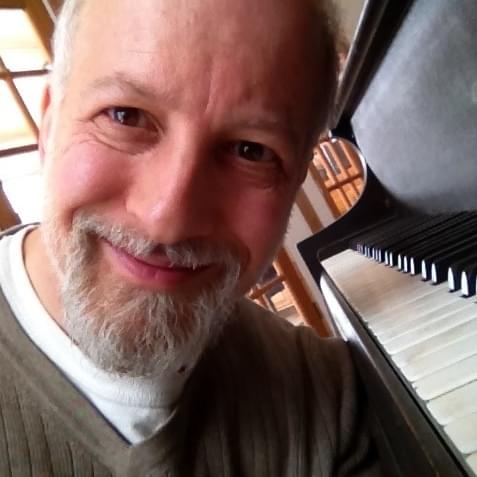
Andrew Bishko
Head Educator
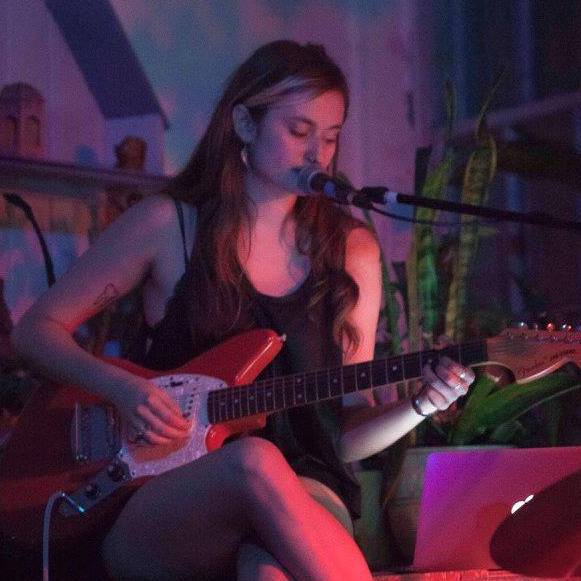
Anastasia Voitinskaia
Product Assistant
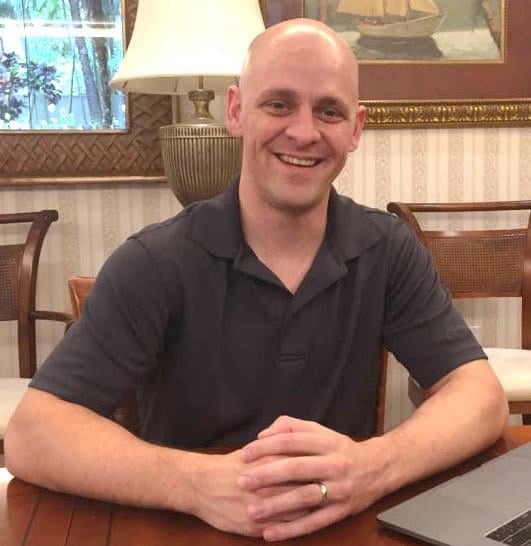
Adam Liette
Operations Manager
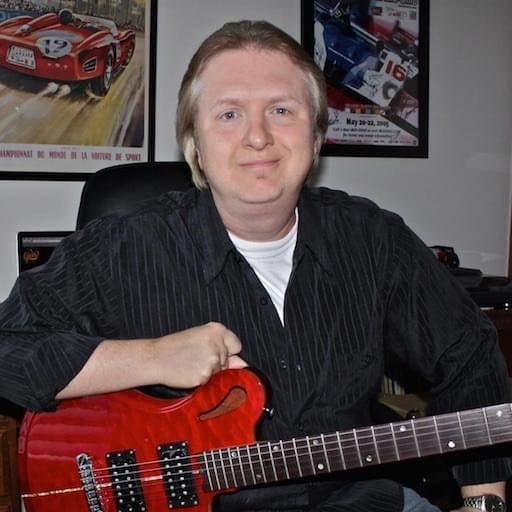
Stewart Hilton
Community Conductor
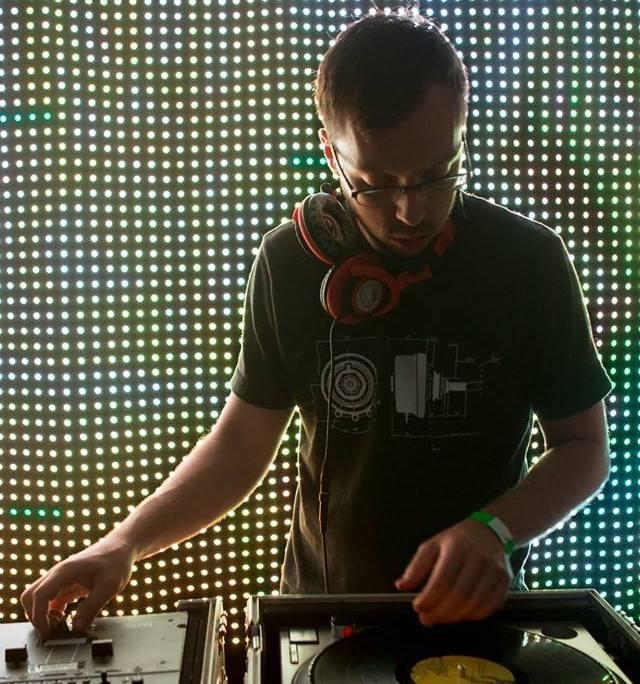
Leading Music Educators Are Saying:

“The Musical U team is downright amazing. They have a great attitude and are always working hard to ensure their members are in the loop and making progress towards their goals. I'm not aware of any other community out there like it. Highly recommended!”
- David Andrew Wiebe
Music Entrepreneur HQ

- Natalie Weber
Music Matters Blog
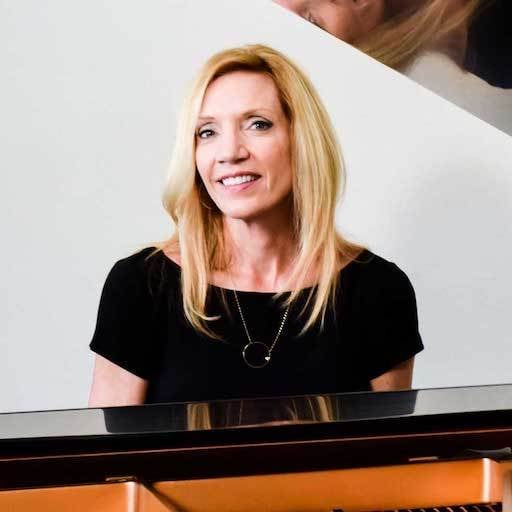
"The guidance and content found at Musical U is outstanding for those seeking to find their musical voice as well as those who've found it and need support to further their skills and creativity."
- Leila Viss
88 Creative Keys

"Fantastic ideas and inspiring insights into learning, playing and teaching music."
- Glory St. Germain
Ultimate Music Theory

“What makes Musical U a great place to learn music is their atmosphere of caring about their students and really sharing the joy of music. It's a refreshing and welcome resource for all music lovers.”
- David Reed
Improvise For Real
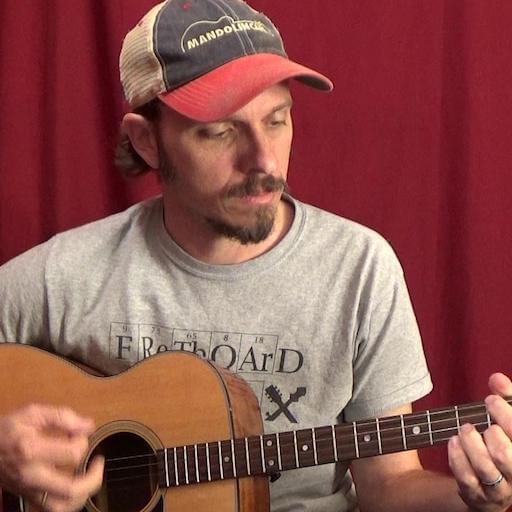
"For those of us willing to seek it out, we now have the ability to invite the best musical instructors from all over the world into our homes to teach us the ideas that can open up the world of music to us. Our friends at Musical U are some of the best of the best!”
- Scott Sharp
Fretboard Toolbox
Hesitating? Don’t worry.
If you’ve never tried improvising before, or you’ve tried it and struggled, then it’s natural that you would hesitate for a moment before deciding to try Improv Immersion...
Even at this low price ($79) and short time commitment (just one week) you might be unsure if you should go ahead.
“What if it doesn’t work out?”
Let us take that risk off your shoulders.

When you buy Improv Immersion today your purchase is covered by a 60-Day Total Satisfaction Money-Back Guarantee.
Here at Musical U we kind of hate that word “satisfaction” though...
We don’t want you to be satisfied.
We want you to be absolutely delighted.
Just like the thousands of musicians before you who’ve succeeded with Musical U training.
So we request that you don’t see this guarantee as a “last resort” if everything goes terribly.
Please see it instead as our way of saying:
“Hey, we get that you might not be sure...
So come in, try it out, and decide over the next 60 days if it was everything we said it would be.
Experience the results in your own musical life - and then decide.”
We’re confident that once you experience what Expansive Creativity can do for you, and how learning to improvise this way transforms your enjoyment and confidence throughout your musical life you’ll never look back.
Secure Checkout. Prices in US Dollars. 100% Satisfaction Money-Back Guarantee.

What could improvising mean for YOU?
Improvising a killer solo is great - but hopefully now you see that “improvising” means so much more than just that.
But what could it mean for you?
If all that Improv Immersion did for you was:
- Let you always perform with confidence, knowing you can handle any musical "mistake" with grace.
- Set you free, permanently, from sheet music, chord charts and tab.
-
Made any musical collaboration easy and appealing because you always know you'll have something unique and valuable to contribute.
- Changed your relationship with music practice, making every practice session endlessly interesting and varied while still delivering effective improvement.
-
Empowered you to easily write and compose your own original music.
-
Gave you a way to quickly develop your musical ear without any repetitive drills or exercises.
-
Deepened your relationship with your instrument to the point where your fingers always know what to do.
-
Set your musical instinct free - letting you act on intuition and feel truly, deeply musical.
How would that change your musical future?
And what would that be worth to you?
CUSTOM JAVASCRIPT / HTML
Here's Everything You Get When You Buy Improv Immersion Today:
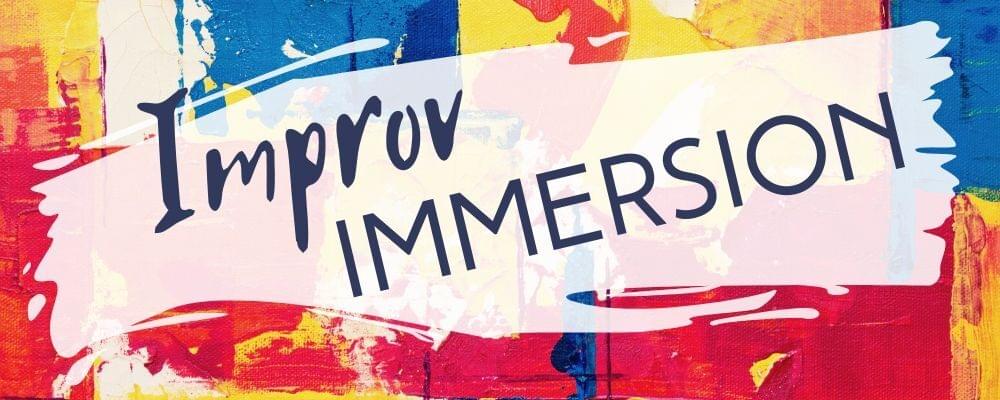
- Full 7-Day Course Teaching Improvisation From Scratch
-
Unique Expansive Creativity™ Framework
- "Learn", "Practice" And "Apply" Lessons Each Day
- Flexible and Convenient Online Access 24/7
-
Unlimited Personal Support and Guidance
-
Keep Access To All Materials, Even After Course Ends
Total Value With Bonuses:
Your Price Today:
Just $79!
Prices in US Dollars. Secure Checkout. 100% Satisfaction Money-Back Guarantee.

“In my jazz journey I’ve been overwhelmed with trying to catch up with those who have mastered this craft. I’m learning to find joy in the journey now.”
– Sharilynn H., Improv Immersion student

“I love that this course has answered a lot of the "how" do I improvise.”
– Chris M., Improv Immersion student

Frequently-Asked Questions
Q: When does the course begin? Is it flexible?
The course will begin after you purchase.
It’s structured as a 7-day program providing daily training. However you can move through the course at your own pace and will have lifetime access to the materials.
Each day's training is provided for you to go through whenever you're ready, on-demand.
So although the course modules will be made available to you on a daily schedule after your purchase, you are free to begin the course whenever you like and proceed at your own pace.
Q: How much time will it take?
We estimate it will take 60-90 minutes to complete each day's module including the live call, depending on your prior knowledge, how quickly you go through the material and how long you spend on the exercises.
Don't have an hour a day?
No problem.
We understand that music time can be limited and precious, often scheduled around a busy life!
So the course timing is fully flexible. You can move at your own pace and will have lifetime access to the course.
For example, each module is split into three parts and so you could easily choose to use it as a 30-day course, spending 20-30 minutes per day.
Q: What happens at the end of the course, can I keep the material?
Yes. You’ll have access to the web material even after the "official" 7-day period is over, for as long as you need.
Q: Is this suitable for beginners? Do I need to know music theory or have strong instrument skills?
The course is designed to be 100% accessible to beginners. If you know what a major scale is (and ideally can play one or two on your instrument) you’ll be fine.
The unique teaching method means we’re able to go seriously deep and cover even quite advanced topics without it ever seeming complicated or overwhelming.
Q: What if I get stuck or need help?
At Musical U we specialise in helping adult music-learners succeed with online training materials.
Any time you feel stuck, confused, have a question or need help, our team will be standing by and happy to help.
The first option is to post in the discussions you'll find throughout the course. Our team will be in there every day answering questions and providing any clarification or tips required.
The second option is to contact our team directly if you'd prefer to receive help privately. You can do this by email or using the message system on the site.
Q: Will this work for my instrument?
Does your instrument play notes? Then "yes"!
The course is designed to be accessible and usable with all instruments. The focus is on melodic improvisation (meaning one note at a time) - but you will be learning frameworks which can be applied to multi-note improvisation too.
Q: How does this relate to Musical U Membership?
Q: Is this suitable for teachers?
We are always eager to support music teachers in any way we can. So (as always with Musical U materials) although we don't design specifically for use by teachers with their students we are happy for you to adapt our material for that purpose as suits your teaching. If you need any specific permission or clarification please get in touch (support@musical-u.com) and we'll be happy to help.
Any other questions?
We're a people-first company and put heavy emphasis on providing personal support to ensure each and every person who comes to us succeeds with their training.
So if you have any questions about the course (or just want to talk through whether it's right for you) please get in touch. We'll be glad to help :)
Email: support@musical-u.com
Telephone (US): +1 (415) 230 0296
Telephone (UK): +44 203 290 2961
Secure Checkout. Prices in US Dollars. 100% Satisfaction Money-Back Guarantee.

“This was fun! I could play/ create freely for hours.”
– Shayne C., Improv Immersion student

“Wow! This is so spot on. Brilliant.”
– Marion A., Improv Immersion student

What kind of musician will you be...?
If you’ve read this far then the likelihood is you have either never tried improvising - because you didn’t feel like you had what it took, or didn’t see how it was relevant for your musical life. Or you’ve tried learning to improvise and struggled, or ended up disillusioned with the “improv by numbers” you were handed.
Now you know all that “improvisation” can mean, and all that it could bring to your musical life - what will you choose?
- Will you go on being a musician, who doesn’t consider themselves truly “an improviser” (and perhaps not even a “real” musician), forever dependent on notation or memorisation to be able to play…
-
Will you choose to step into becoming “an improviser” - a musician who can face any musical situation with confidence, knowing they have something original and valuable to contribute.
A musician who can just “pick up and play”, at any moment, knowing with certainty that what comes out will be new, interesting, and musically powerful.
Where will you be a year from now, if you choose the first option?
Chances are, it will be more of the same for you...
Still trapped by notation.
Still feeling limited. Restricted. Frustrated.
Still nervous to step outside the small areas you’ve carefully prepared for.
And still accessing just a tiny fraction of all that you’re truly capable of.
It’s time to put an end to feeling uncreative.
It’s time to say no to “improv by numbers”.
It’s time to crush that endless fear of making mistakes.
It’s time to learn how to leverage all the time and effort you’ve already invested in playing and listening to music, and start bringing your own music from deep inside you out into the world.
In just 7 days you can step into that new identity and equip yourself with the exact mental frameworks and exercises you need to continually improve your improvisational skills, forever more.
Take that step into your bigger, more creative and more exciting musical life now, with Improv Immersion:
Secure Checkout. Prices in US Dollars. 100% Satisfaction Money-Back Guarantee.


Trusted by Thousand of Musicians Around The World.
As Seen In...





